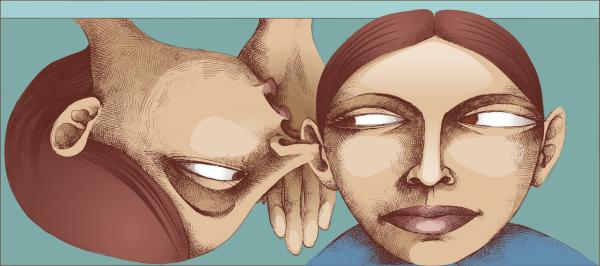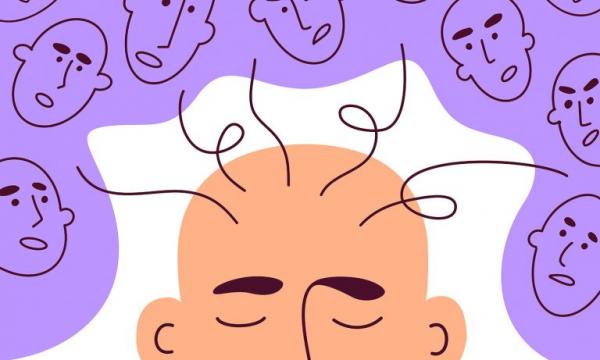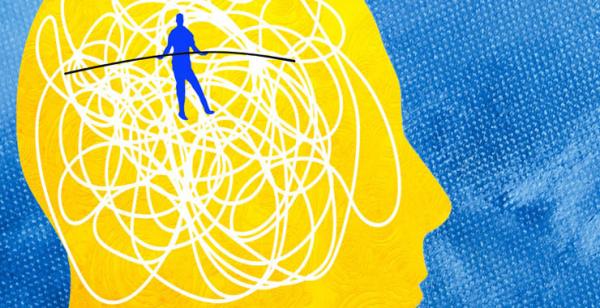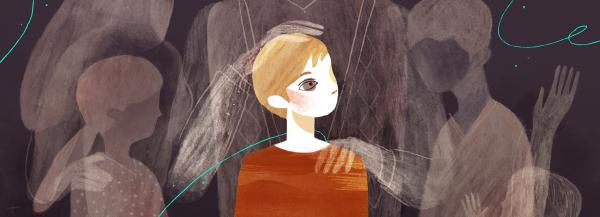All about schizophrenia; Serious mental disorder

 schizophrenia
schizophreniaWhat is schizophrenia?
Schizophrenia is known as a serious mental illness in which people with it have an abnormal perception of reality. The meaning of schizophrenia can be the result of a combination of fantasy, illusion or pathological behavior and thoughts that causes damage to people's performance, in some cases it can lead to disability.
People with schizophrenia need to receive treatment throughout their lives. If treatment is done early, it can help control symptoms before they become a serious problem and may lead to long-term recovery.
 All about schizophrenia or schizophrenia
All about schizophrenia or schizophreniaWhat is the difference between schizophrenia and schizophrenia?
It should be noted that contrary to the general idea of people, they do not have much information about this disease and they consider schizophrenia and schizophrenia as separate from each other, and they also think that each includes a different definition. If they differ only in pronunciation. In French and German, this disease is called schizophrenia, which refers to the structure and grammatical vocabulary. In general, these two diseases have a general relationship with each other, but there is a lexical difference, and the main characteristics in both names are related to mental disorder.
In French and German, this disease is called schizophrenia because of its lexical and grammatical difficulties. In general, these two diseases have a general relationship and lexical differences. The main characteristic of both of them is intellectual confusion.
In 1908, a doctor used this word for the first time. The main symptom that this disease shows is related to unpleasant thoughts and ideas about events that the person has no background about.
One of the biggest problems caused by this disease is the creation of events that are not true at all and will never happen. Part of the disease can be considered as an illusion of a bad and bitter event, for example, a person constantly imagines the illusion of betrayal by his wife, while this never happens, and this illusion is repeated many times.
Types of schizophrenia:
This disease generally manifests itself in five different states, but it is considered an acute and very serious disease that must be treated based on its level. The treatment process of each doctor will be different from another, but in the end, it creates a deep and connected root by treating depression. The doctor must know the type of disease and after that he must make the final decision based on his knowledge and use a standard treatment method.
Schizophrenia treatment is done step by step, and even in necessary cases, drugs and injections can be used to calm the person down and prevent his anger process to some extent. In fact, the decision regarding the treatment of the disease is made based on the science and structure of medicine, and it will also depend on the character and condition of the person. In general, the types of schizophrenia include the following:
paranoid:
This disease occurs in young people and adolescents and is very similar to the structure of psychosis. In this disease, people are delusional and constantly think that another person is trying to harm them. In fact, the root of this disease can go back to any incident in the mind that cannot be defined.
It is not possible to specify a specific range for this type, but finally, any factor that indicates the disease of schizophrenia can be included in this category.
Schizoaffective disorder:
This disorder occurs when a person is also involved with bipolar disorder and schizophrenia in addition to depression, in the same way, the patient will have various symptoms that include madness, mania, depression and all the symptoms of schizophrenia. This disease can have an acute course.
 Types of schizophrenia
Types of schizophreniaCatatonic schizophrenia:
This disorder will be rare and often diagnosed from a person's thoughts. Patients with this type of disorder are confused with people who are involved in a drunken period after drinking alcohol.
Disturbed Schizophrenia:
This type of disease is seen among teenagers and young people and even the person cannot use motor skills, attention span and intelligence properly, even in some cases they will forget simple and basic subjects.
Mild schizophrenia:
In its mild and weak category, this disease can be accompanied by hallucinations and delusions that people do not show in their behavioral range, but in any case, strange conversations and lack of expression of emotions can be seen in them. The treatment of professionals in the treatment of this disease and depression and bipolar disease are involved in mistakes, which should be taken into account.
Symptoms of schizophrenia in adults:
As mentioned, schizophrenia is associated with a variety of problems in cognition, behavior and emotions. The signs and symptoms that they may cause are in a variety of spectrums, which often include mental hallucinations, visual hallucinations, or disturbed speech, on the other hand, it also includes the reflection of people's performance. The symptoms that schizophrenia causes in adults include the following:
mental illusion:
Delusions are false beliefs that do not have a basis in reality, for example, if you think that you may be harmed or attacked, you may have delusions. Some behavior or comments directly target you, you have a special ability, you are famous, someone else is in love with you, or even a disaster is happening, etc. are among the symptoms of hallucinations. Most people with schizophrenia also have hallucinations.
Visual illusion:
This hallucination involves seeing, hearing, or feeling things that aren't there, but are there for people with schizophrenia. Visual illusions will have the same effect as a real and normal experience. Visual hallucinations can be present in any of the senses, but hearing voices is one of the most common types that are common in adult schizophrenia.
Confusion of thought or speech:
Confusion of thought can be deduced from confusion of speech. In people with schizophrenia, effective conversations are lost and answers are given to questions that may be relative, complete or irrelevant. It is rarely possible for people to put together meaningless words that make no sense and in some cases are known as word salad.
Abnormal or severely disturbed behavioral stimulus:
This case is considered another symptom of adult schizophrenia, which will appear in various ways and will vary from irrational and childish behaviors to unpredictable disturbances. The focus of these people is not on a specific goal, that's why it is difficult to perform tasks related to it. Their abnormal behavior includes resistance to rules, unusual or inappropriate body posture, irresponsibility, or extra and useless movements.
Negative symptoms:
This issue refers to the reduction or absence of the ability to function normally. For example, a person may ignore his personal hygiene or not show any emotions. For example, not making eye contact, not changing facial expressions or speech, etc. On the other hand, a person may lose interest in doing daily tasks and become socially withdrawn.
The symptoms caused by schizophrenia will change over time for adults in terms of severity and type, which include acute periods and remissions, on the other hand, some symptoms may always be present.
Schizophrenia symptoms in men begin in their early 20s, and in women, these symptoms often begin in their late 20s. Diagnosing schizophrenia symptoms in children or people over 45 years of age is uncommon.
 Symptoms of schizophrenia
Symptoms of schizophreniaSymptoms of schizophrenia in teenagers:
Adolescents with schizophrenia will have the same symptoms as adults, but the disease will be more difficult to diagnose. This is partly related to the early symptoms of schizophrenia in typically developing adolescents and will be common during adolescence, including: Mention the following symptoms:
– Withdrawal from friends and family
– Decreased performance in school
– Sleep problem
– Irritability or depressed mood
– Lack of motivation
– Recreational use of drugs such as marijuana, methamphetamines or LSD in some cases can cause similar signs and symptoms.
Compared to the symptoms of schizophrenia in adults, adolescents may:
– They are less delusional
– Visual hallucinations are more likely
Drug treatments for schizophrenia:
There is no drug treatment for schizophrenia, but all prescribed drugs can prevent the disorder in more severe cases and have a controlling effect to some extent. On the one hand, they can cause symptoms such as drowsiness, dry mouth, constipation, blurred vision and dizziness for the disease, on the other hand, they cause disturbances in activity and even movement. As a result, one should be very careful in choosing them and the doctor should be very sensitive in these cases.
If there is a problem in taking medicine for these people or if they refuse to do so, you can use intramuscular injection methods. It should be noted that antidepressants are a delay in the onset of the disorder and are commonly referred to as therapeutic drugs. If the drugs are not used, the disease can cause a wide range of behavioral disorders that cannot be completely resolved with positive effect drugs.
 Schizophrenia treatments
Schizophrenia treatmentsIs the disease treatment process useful and effective?
One of the most important concerns that usually exists for people around schizophrenia patients is related to the treatment process and effectiveness. According to research, the presence of a psychologist can affect disease control up to 50%. Even the family will have a great contribution in the treatment of this disorder.
First of all, you should choose a good doctor to treat depression and schizophrenia. After that, based on the need and what the doctor specifies, the person should go to the clinic or office and finally act according to the instructions provided.
Based on the available evidence, treatments can largely prevent more severe disorders. If you are looking for a definitive treatment for schizophrenia, it should be noted that in most cases you can prevent the progression of the disease, but the important and sensitive issue is that if your only focus is on definitive treatment; It will not be a good reason to see a psychiatrist.
compilation: Department of psychology cover






